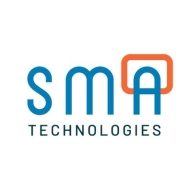

OpCon and JAMS compete in the automation software sector, catering primarily to enterprise-level clients seeking enhanced operational efficiency. OpCon demonstrates distinct strengths in the credit union industry with its robust integration capabilities and self-service solutions, making it a preferred choice for specific industry needs, while JAMS holds an advantage with its superior job scheduling and platform versatility.
Features: OpCon provides several key features such as comprehensive automation for credit union industry tasks, integration with Corelation KeyStone, and a Self-Service Solution Manager that allows non-IT staff to run complex automation tasks easily. JAMS shines with its job dependencies management, centralized operations view, and robust execution capabilities across multiple platforms. It also offers advanced scheduling options and interactive agents for better task automation and operational visibility.
Room for Improvement: OpCon users face challenges with its steep learning curve and complex interfaces, with specific calls for an improved Solution Manager and user interface, as well as better integration with external databases and enhanced visualization features. JAMS needs enhancement in its web-based interfaces, improved documentation, search capabilities, and better handling of exceptions. Users also report issues with UI responsiveness and require more informative error messaging.
Ease of Deployment and Customer Service: Both OpCon and JAMS offer strong technical support, with OpCon notably praised for its immediate and helpful assistance, fostering proactive problem-solving and a supportive user network. JAMS also provides reliable support but has received feedback about responsiveness and adjustments in support structure. OpCon is more commonly adopted in on-premises environments, while JAMS demonstrates greater flexibility in cloud deployments.
Pricing and ROI: OpCon, although not the least expensive, emphasizes value by automating processes and minimizing manual efforts, which translates to reduced personnel costs and boosted efficiency. Its users highlight the platform’s direct savings in labor and operational efficiency. JAMS offers competitive pricing, especially for scalable environments, with unlimited licensing options that benefit dynamic setups. Both platforms focus on maximizing ROI through streamlined operations and effective workforce reallocation.
| Product | Market Share (%) |
|---|---|
| JAMS | 2.8% |
| OpCon | 1.8% |
| Other | 95.4% |

| Company Size | Count |
|---|---|
| Small Business | 11 |
| Midsize Enterprise | 8 |
| Large Enterprise | 18 |
| Company Size | Count |
|---|---|
| Small Business | 16 |
| Midsize Enterprise | 29 |
| Large Enterprise | 19 |
JAMS is an automation and job scheduling solution designed for workflow optimization, catering to businesses large and small with flexible licensing and integration options.
Offering both Core and Advanced packages, JAMS supports a range of environments from small teams to large-scale operations. Its standout features include integration with platforms like PowerShell, SQL, and SAP, coupled with capabilities such as dependency management and natural language scheduling. JAMS simplifies job management, centralizes workflows, and boosts productivity with its robust automation features. Customizable workflows and insightful logging make it adaptable for diverse needs, supported by responsive customer service ensuring seamless operations.
What are JAMS's key features?In industries, JAMS is employed for automating workflows and managing batch jobs. Organizations utilize it for SSIS, SQL Server tasks, file transfers, and integrating with vendor systems, achieving efficient file automation and data management. Scheduler enables precise execution of thousands of tasks daily, enhancing operational efficiency.
OpCon enhances automation with features like auto-scheduling and Corelation KeyStone integration, empowering users with self-service capabilities. Its intuitive interface and flexibility boost productivity, providing reliable automation and efficient file transfers.
OpCon is a powerful automation platform known for streamlining operations through features like auto-scheduling and robust integration capabilities. It facilitates seamless automation, allowing users to execute tasks without direct environment access and simplifies job dependencies. Users benefit from self-service capabilities, which enable easy task execution by non-IT staff, reducing errors and human intervention. With its modern interface, OpCon supports efficient file transfers and integrates effectively with multiple systems, enhancing productivity. While offering significant scalability, OpCon users suggest improvements in web functionality, script-writing, and graphical displays, along with enhancements in user authorization and notification systems. There is also a need for better template management, clearer logging, improved mobile accessibility, and expanded training resources.
What are OpCon's Key Features?OpCon is widely used in industries like financial services, where automation and scheduling tasks are critical. Financial institutions rely on OpCon for core processing tasks, including reporting, automated workflows, and vendor file exchanges. The platform handles high volumes of jobs across platforms, ensuring efficient operations and reducing reliance on manual processes.
We monitor all Workload Automation reviews to prevent fraudulent reviews and keep review quality high. We do not post reviews by company employees or direct competitors. We validate each review for authenticity via cross-reference with LinkedIn, and personal follow-up with the reviewer when necessary.